Since June, the stone-pelting in Kashmir seems to have left the Indian establishment stupefied. The government, both in the state and at the centre, has been reduced to a state of paralysis, almost as though they have been ‘stoned’ by the stones. To add to the confoundedness of the government, parachute journalists, with little sense of history and even less sense of reality, have been indulging in needless breast-beating about the situation in Kashmir and making recommendations, not to mention analyses, which are not just downright stupid but also dangerous, if not treasonous. The loss of perspective on what is actually happening in Kashmir has led to panicky responses at all levels of the government, which increasingly seems to be losing not just its nerve, but also its will as well as its wits in handling the unrest in the Valley.
There are three great myths about the latest round of stone-pelting: one, that it’s a peaceful protest; two, the security forces are using disproportionate force to control the disturbances; and three, it is a completely new phase in the unrest in Kashmir in which for the first time young people are coming out on to the streets, ready to face bullets. These three myths exemplify the complete loss of perspective that has afflicted even normally sober and sensible people in India.
First and foremost, there is nothing, repeat nothing, peaceful about stone pelting. Yes, stones are not as lethal as the bullets used by terrorists. But stones injure and maim and can even kill. For those who consider stone-pelting a peaceful demonstration, one can only challenge them to face a barrage of stones with the equanimity that they expect from the policemen on the streets of Kashmir. Better still, a stone-pelting demonstration should be carried out in front of their houses. Assuming that in keeping with their commitment to not use disproportionate force, these bleeding hearts should allow the mob to do as they please (something that is implicit in the way they castigate the police’s management of the stone-pelting crowd), including setting their offices or homes on fire, as has been done by the ‘peaceful’ protestors in Kashmir on the few occasions when the police was ordered to stand down. One can be sure that faced with such ‘peaceful’ demonstrations against them, these bleeding hearts will rush for protection to the police whom they have no compunction in vilifying today.
As far as use of disproportionate force is concerned, the facts on the ground clearly indicate that the force used to contain the stone-pelters is far from being disproportionate. In the last 100 odd days, there have been around 100 deaths in police firing – an average of one death per day. The ‘disproportionate force’ argument would hold weight if the police and paramilitary forces were to fire indiscriminately on the stone-pelting crowd and kill a few dozen people in every such encounter. Also, compare the casualty rate of 1 per day with the casualty rate during the days of armed militancy when every single day there used to be ten or more violent deaths in Kashmir caused mostly by the terrorists who used to target their rivals and civilians.
Third, while the jihad in Kashmir has now taken a new form – bullets having been replaced by stones – the average age of the stone-pelting jihadi in 2010 is the same as the average age of the gun-wielding jihadi in 1990. When terrorism started in Kashmir in the late 1980s, the average age of the terrorists was not 40 years or 60 years, but around 20-22 years, exactly the average age of the neo-jihadis or the stone-pelters. It is important, therefore, not to go overboard in trying to analyze the latest round of unrest in Kashmir and coming out with findings that fly in the face of the ground reality.
Unfortunately, instead of acknowledging the political and administrative incompetence of the state and central governments, or understanding the political dynamic in which the opposition PDP is exploiting the situation to stoke the fires further in order to push the Abdullahs’ into political oblivion, the army has become the fall-guy. Even though the army is nowhere involved in crowd control, a needless clamour has been raised for withdrawing the Armed Forces Special Powers Act (AFSPA). This is nothing but a red herring.
Given that NC won most of its seats in the J&K assembly from Srinagar in the Kashmir valley, what is preventing the elected representatives of the party from reaching out to the people who elected them and who are today on the streets, pelting stones? Where are the workers and cadres of the political parties? Isn’t it strange that the Kashmiri politicians who are lobbying in New Delhi – NC to save its government and PDP for support to form a new government – are nowhere on the ground trying to pacify the public and prevent violence from spiralling out of control and causing needless casualties? Aren’t the Congress ministers in the Jammu and Kashmir cabinet, also culpable because of their tolerance of the continuing misgovernance, rather absence of governance, by the Chief Minister? What steps have the Congress ministers taken to improve administration in the state and either guide the Chief Minister or hold him to account for the drift in the affairs of state?
While there are innumerable questions that can be asked from the politicians in Jammu and Kashmir, there are some extremely important questions that the political class and civil society in Delhi also needs to answer. Why is it that the media and civil society which is so outraged every time Raj Thackeray and his goons talk of the Marathi Manoos and resorts to violence, are so tolerant and understanding of similar tactics being adopted by the Kashmiri stone-pelters? Equally important is the question as to why politicians, especially the Communists, who find it unpalatable to share a stage with Narendra Modi because in their book he is the epitome of communalism, don’t bat an eyelid in reaching out and holding a dialogue and even compromise with the Kashmiri separatists like Syed Ali Shah Geelani or Mirwaiz Umar Farooq, who are not only raising anti-India slogans but are also unabashed and unapologetic practitioners of the Pakistani brand of Islamo-fascism in which all minorities are treated as untermensch?
Why is it that so much understanding is shown for the “alienation” and ‘’discontent’’ among Kashmiri youth, but the same consideration is missing when it comes to youth from other parts of India who too have their share of grievances, only they don’t denounce India or go about setting fire to government property for a lark and some money, which in Kashmir is being doled out hand over fist by agent provocateurs? How come it is kosher for the stone-pelting mobs in Kashmir to attack police stations and government buildings but blasphemy when Shiv Sena and MNS goons attack media outfits or multiplexes in Mumbai to vent their ‘grievances’? Or is it the case that while law enforcement agencies are fair game, media outfits and entertainment centres are a holy cow? No, we don’t hold a brief for the Shiv Sena or the MNS and consider them as repulsive and as antithetic to the idea of India as the Kashmiri stone-pelting mobs. But why have double-standards?
In the ultimate analysis, there is absolutely no reason for the government of India or the political establishment to behave in a knee-jerk manner over the disturbances in Kashmir and try to appease the separatists, both of the hard and the soft variety. It is important to recognise that the virus of Islamic terrorism that has seeped into Kashmiri society will take long years to go. Kashmir will be won by the side with the greater will, capacity, courage and commitment. Sadly, the manner in which the government is responding to the situation in Kashmir betrays an unfortunate absence of all of these attributes.
-----------------------------------------------
Published Date : September 28, 2010

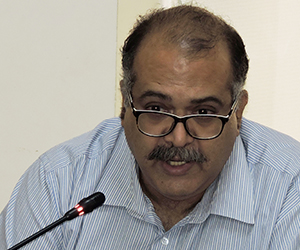
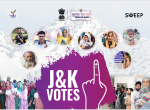

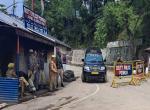
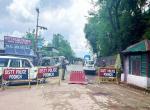
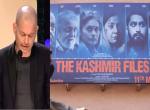
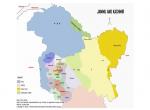


Post new comment